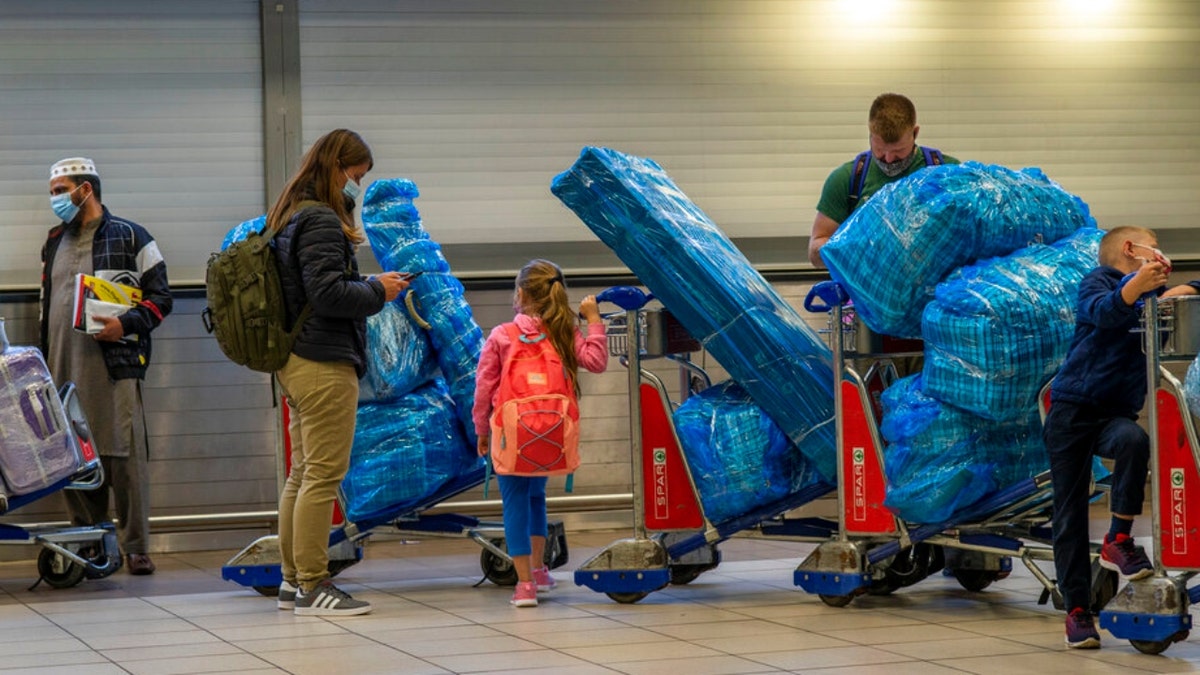Fox News Flash top headlines for November 27
Fox News Flash top headlines are here. Check out what's clicking on Foxnews.com.
The U.S. Centers for Disease Control and Prevention (CDC) said Friday night that no cases of the omicron COVID-19 variant have been identified in the U.S. to date.
In a statement, the agency wrote that it was following the details of the new B.1.1.529 variant, which was first reported to the World Health Organization (WHO) by South Africa and classified as a "variant of concern" by the organization on Friday.
"We are grateful to the South African government and its scientists who have openly communicated with the global scientific community and continue to share information about this variant with the U.S. Department of Health and Human Services and CDC.," the CDC said.
OMICRON CORONAVIRUS VARIANT IDENTIFIED IN SOUTH AFRICA PROMPTS TRAVEL RESTRICTIONS: LIVE UPDATES
"We are working with other U.S. and global public health and industry partners to learn more about this variant, as we continue to monitor its path," it wrote.
The CDC noted that it is continuously monitoring variants and that the U.S. variant surveillance system has reliably detected new variants in the U.S.
"We expect omicron to be identified quickly, if it emerges in the U.S.," the agency added.

People lineup to get on an overseas flight at OR Tambo’s airport in Johannesburg, South Africa’, Friday Nov. 26, 2021. A slew of nations moved to stop air travel from southern Africa on Friday in reaction to news of a new, potentially more transmissible COVID-19 variant that has been detected in South Africa. Scientists say it is a concern because of its high number of mutations and rapid spread among young people in Gauteng, the country’s most populous province. (AP Photo/Jerome Delay)
The agency said travelers to the U.S. should continue to follow the CDC's recommendations for traveling and that people should continue to follow COVID-19 prevention strategies, like wearing a well-fitting mask in public indoor settings in areas of substantial or high community transmission, physically distancing, washing their hands frequently and getting vaccinated against the disease.
The CDC said it would provide updates as more information becomes available.
News of the variant sent health officials across the world scrambling to react on Friday, with several countries – including the U.S. – implementing travel restrictions despite WHO guidance and pleas from the Africa Centers or Disease Control and Prevention, which said that such travel bans have "not yielded a meaningful outcome."
COVID-19 OMICRON VARIANT: HERE'S WHAT WE KNOW
Cases of the variant have been reported in Belgium, Israel and Hong Kong. Germany also has a probable case.
Dutch authorities are checking for the omicron variant after 61 passengers on two flights from South Africa tested positive for COVID-19.
U.K. Health Secretary Sajid Javid confirmed Saturday that two people in Britain had tested positive for the variant and that the cases were linked and related to travel from southern Africa.
One was in the southeastern English town of Brentwood and the other was in the central city of Nottingham. The two cases are self-isolating alongside their households while contract tracing and targeted testing takes place.
"It seems to spread rapidly," President Biden said Friday, telling reporters that he's decided "that we’re going to be cautious."
The White House said that the U.S. will restrict travel from South Africa and seven other countries in the region beginning on Monday, with exceptions for U.S. citizens, permanent residents and for several other categories.
The omicron variant – which has a high number of mutations – alarmed health professionals due to its swift spread among young people in South Africa, although there was no immediate indication whether the variant causes more severe disease.
Early evidence suggests omicron carries an increased risk of infection compared with other highly transmissible variants, according to the WHO.
CLICK HERE TO GET THE FOX NEWS APP
U.S. and South African scientists were meeting Friday to discuss their findings, though it is not yet known whether omicron can evade immune response.
A number of pharmaceutical firms, including AstraZeneca, Moderna, Novavax and Pfizer, said they have plans in place to adapt their vaccines in light of the emergence of omicron.
The Associated Press contributed to this report.






















